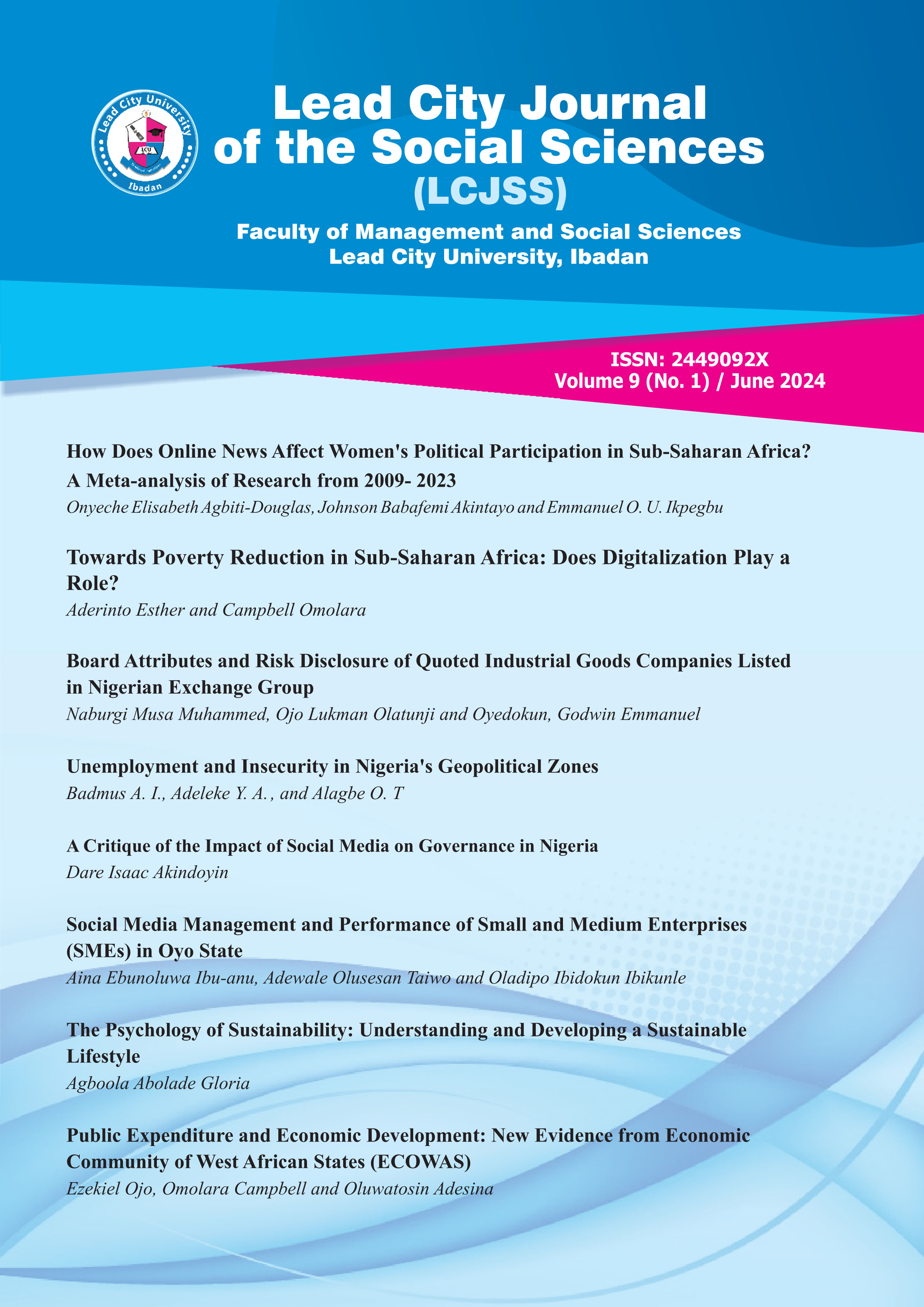A Critique of the Impact of Social Media on Governance in Nigeria
Keywords:
Nigeria, Governance, Social Media, InformationAbstract
The impact of social media on governance in Nigeria has become a focal point of scholarly and practical
inquiry in recent years. Nigeria, the most populous African state with a burgeoning digital landscape,
has witnessed a transformation in its governance dynamics owing to the pervasive influence of social
media platforms. Social media has emerged as a potent tool for citizen engagement, political
mobilization, and information dissemination in Nigeria. It has enabled citizens to voice their opinions,
hold leaders accountable, and participate in democratic processes more actively than ever before.
However, the impact of social media on governance in Nigeria is not without challenges. The
dissemination of misinformation, hate speech, and fake news poses significant threats to political
stability and social cohesion. The unchecked spread of rumours and inflammatory content on social
media platforms has fueled ethnic tensions, religious conflicts, and political polarization in the country.
Thus, the paper explores the pros and cons of social media on governance in Nigeria and investigate the
nexus between governance and social media in Nigeria with the aid of Technological Determinism as a
theoretical framework. Adopting a qualitative approach with the use of secondary data sources such as
academic journals, government reports, and media reports, the study critically analyse the impact of
social media on governance in Nigeria. The study finds that social media has democratized access to
information in Nigeria. The study recommends the implementation of specific laws and regulations that
govern social media usage to ensure accountability and responsible behaviour online. Meanwhile, on
the part of the Nigerian authorities, the study recommends collaborating with social media platforms
like Facebook, Twitter, and Instagram to develop and enforce community guidelines that can help
mitigate the spread of harmful content

